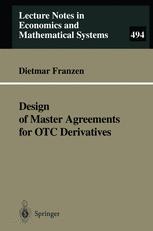

Most ebook files are in PDF format, so you can easily read them using various software such as Foxit Reader or directly on the Google Chrome browser.
Some ebook files are released by publishers in other formats such as .awz, .mobi, .epub, .fb2, etc. You may need to install specific software to read these formats on mobile/PC, such as Calibre.
Please read the tutorial at this link: https://ebookbell.com/faq
We offer FREE conversion to the popular formats you request; however, this may take some time. Therefore, right after payment, please email us, and we will try to provide the service as quickly as possible.
For some exceptional file formats or broken links (if any), please refrain from opening any disputes. Instead, email us first, and we will try to assist within a maximum of 6 hours.
EbookBell Team

5.0
108 reviewsI first came across the issue of derivatives documentation when writing my diploma thesis on measuring the credit risk ofOTC derivatives while I was an economics student at the University of Bonn. Despite the fact that security design has been an area of research in economics for many years and despite the widespread use of derivatives documentation in financial practice, the task of designing contracts for derivatives transactions has not been dealt with in financial theory. The one thing that aroused my curiosity was that two parties with usually opposing interests, namely banking supervisors and the banking industry's lobby, unanimously endorse the use ofcertain provisions in standardized contracts called master agreements. Do these provisions increase the ex ante efficiency of contracts for all parties involved? I actually began my research expecting to find support for the widely held beliefs about the efficiency or inefficiency of certain provisions and was sur prised to obtain results that contradicted the conventional wisdom. I would strongly advise against using these results in any political debate on deriva tives documentation. They were obtained within a highly stylized model with some restrictive assumptions. This work should rather be seen as an attempt to formalize the discussion on derivatives documentation and to challenge the notion that certain provisions are generally ex ante efficient. It is also an invitation to all those advocating the use of certain provisions in master agreements to formalize their arguments and to explain the economic ratio nale behind these provisions.